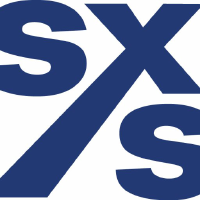London open: Stocks fall after retail sales, consumer confidence data

London stocks fell in early trade on Friday amid ongoing concerns about the situation in the Middle East, as investors mulled weaker-than-expected retail sales, a deterioration in consumer confidence and the latest government borrowing figures.
At 0845 BST, the FTSE 100 was down 0.6% at 7,451.27.
Data released earlier by the Office for National Statistics showed that retail sales fell much more than expected in September as unseasonably warm weather dented clothing sales.
Sales were down 0.9% on the month following a 0.4% increase in August, versus consensus expectations for a 0.2% decline. On the year, sales fell 1% in September following a 1.3% drop a month earlier.
The data showed that sales at both clothing stores and department stores fell 1.6%.
Meanwhile, non-store retailing sales declined 2.2% in September, with retailers reporting a hit from the unseasonably warm weather and the ongoing cost-of-living crisis.
ONS chief economist Grant Fitzner said: “Retail sales fell notably in September with retailers telling us that cost-of-living pressures are influencing consumers, particularly for sales of non-essential goods.
“It was a poor month for clothing stores as the warm autumnal conditions reduced sales of colder weather gear.
“However, September’s unseasonable warmth did help drive up food sales a little, and fuel sales rebounded from last month’s fall.”
Investors were also digesting an uninspiring survey from GfK, which showed that the confidence index fell nine points to -30 in October, reversing two months of improving scores, as growing economic uncertainty weighed heavily.
Within that, the steepest drop was seen in the major purchase index, which tumbled 14 points to -34.
Expectations for personal finances for the next 12 months fell by six points to -8, while expectations for the general economic situation slipped eight points to -32.
Joe Staton, client strategy director at GfK, said: “This sharp fall underlines that the cost of living crisis, and simply not having enough money to make ends meet, are still exerting acute pressure for many consumers.
“The fierce headwinds of meeting the accelerating costs of heating our homes, filling our petrol tanks, coping with surging mortgage and rental rates, a slowing jobs market and now the uncertainties posed by conflict in the Middle East, are all contributing to this growing unease.
“The volatility we are seeing in consumer confidence is a sure sign of a depressed economic mood and there’s no immediate prospect of any improvement.”
Sophie Lund-Yates, lead equity analyst at Hargreaves Lansdown, said: “While no one was expecting the month to be a bright spot for the high street, the full picture suggests a harsher-than-expected reining in of discretionary spending. In value terms, spending is robust – largely because of inflation, but volumes are dropping.
“The confidence knock of spending more to get less has also shown up in the GfK consumer confidence index which has seen its biggest month-on-month decline in over three years. It now sits at minus 30, at levels last seen when the government introduced strict Covid-19 rules. This is a worse slide than expected and speaks to growing anxiety and the potential that we’re looking at a steeper consumer pullback than forecast as we head into the Christmas trading season.”
Separate figures from the ONS showed that government borrowing unexpectedly fell last month, but still managed to register the sixth-highest level since records began.
Public sector net borrowing – which is the deficit between what the government spends and what it receives in taxes – came in a £14.3bn in September. This was down £1.6bn on last September but still the sixth highest September borrowing since monthly records began in 1993, with the years during Covid and after the global financial crisis being higher.
The figure surprised many, including the Office for Budget Responsibility itself, which had forecast a rise to £20.5bn. Analysts meanwhile had pencilled in a figure closer to £18.3bn.
Corporate news was thin on the ground, but InterContinental Hotels Group fell after it reported a big slowdown in RevPAR – a key performance measure used in the hospitality industry – in the third quarter as growth softened across all regions. However, the group said it still expects a “very strong financial performance” this year.
Top 10 FTSE 100 Risers
| Sponsored by Plus500 |
|
| # | Name | Change Pct | Change | Cur Price | |
|---|---|---|---|---|---|
| 1 |  |
Bae Systems Plc | +0.96% | +10.00 | 1,050.50 |
| 2 |  |
Melrose Industries Plc | +0.93% | +4.30 | 465.00 |
| 3 |  |
Burberry Group Plc | +0.58% | +10.00 | 1,732.00 |
| 4 |  |
Unilever Plc | +0.58% | +23.00 | 4,011.50 |
| 5 |  |
Shell Plc | +0.42% | +11.50 | 2,769.50 |
| 6 |  |
Gsk Plc | +0.41% | +6.00 | 1,457.20 |
| 7 |  |
Imperial Brands Plc | +0.41% | +7.00 | 1,727.50 |
| 8 |  |
Bp Plc | +0.36% | +2.00 | 554.90 |
| 9 |  |
Hargreaves Lansdown Plc | +0.26% | +1.80 | 694.00 |
| 10 |  |
United Utilities Group Plc | +0.15% | +1.50 | 1,017.50 |
Top 10 FTSE 100 Fallers
| Sponsored by Plus500 |
|
| # | Name | Change Pct | Change | Cur Price | |
|---|---|---|---|---|---|
| 1 |  |
Intercontinental Hotels Group Plc | -3.09% | -190.00 | 5,964.00 |
| 2 |  |
Anglo American Plc | -2.92% | -63.00 | 2,093.00 |
| 3 |  |
Hsbc Holdings Plc | -2.43% | -15.60 | 625.60 |
| 4 |  |
Carnival Plc | -2.42% | -20.60 | 829.40 |
| 5 |  |
Spirax-sarco Engineering Plc | -2.22% | -186.00 | 8,198.00 |
| 6 |  |
Bt Group Plc | -1.72% | -2.00 | 114.05 |
| 7 |  |
Rolls-royce Holdings Plc | -1.61% | -3.30 | 202.30 |
| 8 |  |
International Consolidated Airlines Group S.a. | -1.52% | -2.15 | 139.65 |
| 9 |  |
Hikma Pharmaceuticals Plc | -1.51% | -30.00 | 1,962.00 |
| 10 |  |
Admiral Group Plc | -1.49% | -37.00 | 2,452.00 |
US close: Stocks drop on Powell comments as bond yields near 5%
US stocks dropped into the red on Thursday as 10-year bond yields closed in on the 5% mark on the back of comments from Federal Reserve chair Jerome Powell, who indicated that monetary policy would likely remain restrictive for some time yet.
Ongoing geopolitical tensions in Israel were also continuing to weigh on sentiment, as seen by gold prices rising a further 1% to $1.986 an ounce on safe-haven demand as investors reduced their appetite for risk.
After struggling for direction for most of the morning, markets fell into negative territory after Powell’s remarks, with the Dow finishing 0.8% lower, the S&P 500 falling 0.9% and the Nasdaq dropping 1%.
While Powell didn’t go as far as saying that another rate hike was on the cards, he said that monetary policy wasn’t “too tight right now” and that policymakers were “united in our commitment to bringing inflation down sustainably to 2%”.
In prepared remarks, Powell said the recent easing of inflation was a positive sign, but economic indicators in September were “somewhat less encouraging”.
“Inflation is still too high, and a few months of good data are only the beginning of what it will take to build confidence that inflation is moving down sustainably toward our goal,” Powell said. “We cannot yet know how long these lower readings will persist, or where inflation will settle over coming quarters.”
Following the speech, the yield on a 10-year US Treasury note reached a new high of 4.996%, up 9.4 basis points on the day, setting fresh 16-year highs.
“We still expect the bond market to do the Fed’s work, making further policy rate hikes redundant,” said analysts at Rabobank. However, they added that there is upside risk: “If economic data remain strong, sooner or later the FOMC will have to resume its hiking cycle.”
Netflix impresses, Tesla drops
Netflix shares finished the session up 16% after the streaming group impressed with an 11% rise in subscriptions in its third quarter, along with plans to raise prices. The 8.8m net new paid subscribers was the biggest quarterly increase in over three years.
Tesla was down by 9% following a worse-than-expected decline in third-quarter profits, as founder Elon Musk delivered a cautious outlook on its long-delayed Cybertruck.
Telecoms group AT&T jumped 7% after beating earnings expectations in the third quarter on the back of strong wireless subscriber additions, and raising its free cash flow guidance.
Friday newspaper round-up: English councils, OBR, M&G
Many more councils in England are at risk of bankruptcy, town hall leaders have warned, as unprecedented financial pressures force local authorities to prepare drastic cuts to services to cope with a collective £4bn deficit. The bleak message, set out in a letter to the chancellor, Jeremy Hunt, said council budgets were “under pressure like never before” because of the rapid deterioration in their finances caused by inflation and soaring demand for social care. – Guardian
Rail workers at English train operating companies have voted overwhelming for another six months of potential strikes, the RMT union announced. More than 20,000 union members were balloted across the 14 companies contracted to the Department for Transport, with 90% voting to give the union a continued mandate for strikes, on a 64% turnout. – Guardian
The Government’s financial watchdog has admitted it made “genuine errors” in its economic forecasts as it underestimated the inflation shock from Covid and the war in Ukraine. The Office for Budget Responsibility (OBR) said its forecasts in March 2021 and March 2022 missed a large part of the spike in prices and the subsequent state support schemes, which led to ramifications for its predictions of tax revenues, spending and interest rates. – Telegraph
M&G plans to close its main UK property fund, citing the waning popularity of open-ended funds among “mom and pop” investors. The 25 buildings left in the M&G Property Portfolio, last valued at £565 million, will be sold off over the next 18 months, with the proceeds being returned to investors. While the fund is being wound down, M&G will cut its fees by 30 per cent. – The Times
Blackstone fell short of expectations in the third quarter amid a decline in profits from asset sales and amid investors’ caution over committing money to private equity funds. The alternative asset manager said that its net profit from the sale of assets had fallen by 36 per cent to $259.4 million in the three months to the end of September. – The Times


 Hot Features
Hot Features












